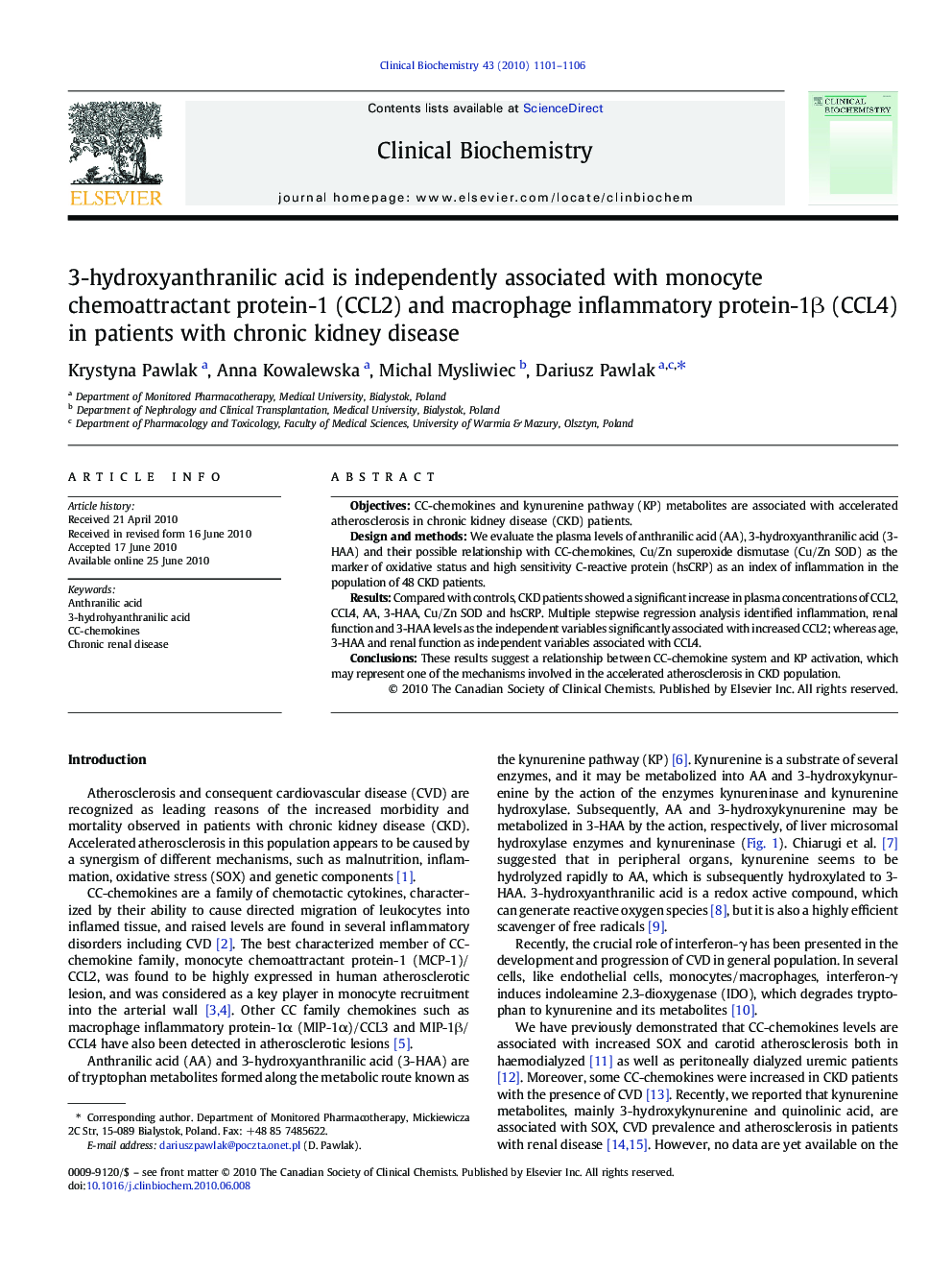| Article ID | Journal | Published Year | Pages | File Type |
|---|---|---|---|---|
| 1971169 | Clinical Biochemistry | 2010 | 6 Pages |
ObjectivesCC-chemokines and kynurenine pathway (KP) metabolites are associated with accelerated atherosclerosis in chronic kidney disease (CKD) patients.Design and methodsWe evaluate the plasma levels of anthranilic acid (AA), 3-hydroxyanthranilic acid (3-HAA) and their possible relationship with CC-chemokines, Cu/Zn superoxide dismutase (Cu/Zn SOD) as the marker of oxidative status and high sensitivity C-reactive protein (hsCRP) as an index of inflammation in the population of 48 CKD patients.ResultsCompared with controls, CKD patients showed a significant increase in plasma concentrations of CCL2, CCL4, AA, 3-HAA, Cu/Zn SOD and hsCRP. Multiple stepwise regression analysis identified inflammation, renal function and 3-HAA levels as the independent variables significantly associated with increased CCL2; whereas age, 3-HAA and renal function as independent variables associated with CCL4.ConclusionsThese results suggest a relationship between CC-chemokine system and KP activation, which may represent one of the mechanisms involved in the accelerated atherosclerosis in CKD population.
